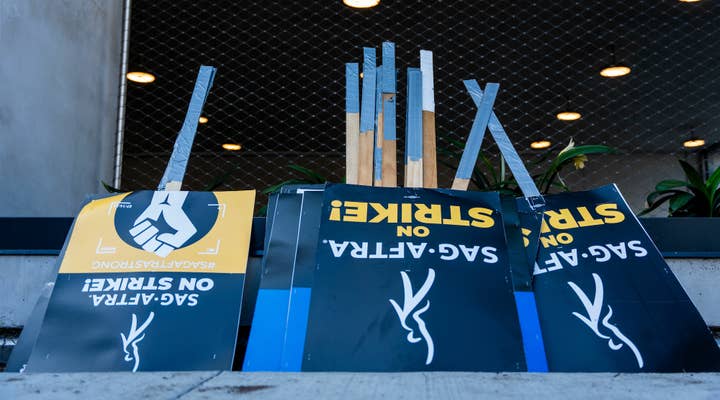SAG-AFTRA is ready to strike if game companies don't "come to the table with a deal" to protect jobs against AI
"Our resolve is unwavering and should not be tested"
The SAG-AFTRA National Board has unanimously agreed to permit its chief negotiator to call an immediate strike at will in a bid to protect voice actors fighting for job security as more and more studios explore generative AI.
In a statement, SAG-AFTRA – which represents over 160,000 actors, broadcast journalists, news writers, recording artists, voiceover artists, and other media professionals – said that if called, "the strike shall be over all covered services under the Interactive Media Agreement and all SAG-AFTRA members will cease rendering all services and performing all work covered by the IMA."
Whilst all parties continue negotiations under the Interactive Media Agreement, the union says they "remain far apart on resolution of necessary terms covering critical AI protections for video game performers."
"Our resolve is unwavering and should not be tested. Our membership voted more than 98% yes to authorise a strike of this contract should the employers not come to the table with a deal that includes our critical provisions - especially in AI," said national executive director and chief negotiator Duncan Crabtree-Ireland.
"We are steadfast in our commitment to our membership who work this contract and whose extraordinary performances are the heart and soul of the world’s most popular video games. Time is running out for the companies to make a deal."
It's now been nine months since SAG-AFTRA members voted in favour of a strike authorisation in the games industry due to stalling negotiations over the Interactive Media Agreement.
The bargaining has been ongoing since October 2022 with companies including Activision, EA, Epic Games, Insomniac, WB Games, and more – all firms working with actors on voice and motion performances for video games.
Crabtree-Ireland recently told GamesIndustry.biz that the principles SAG-AFTRA has been fighting for have had a lot of public support, including "from people who normally don't like unions at all."

